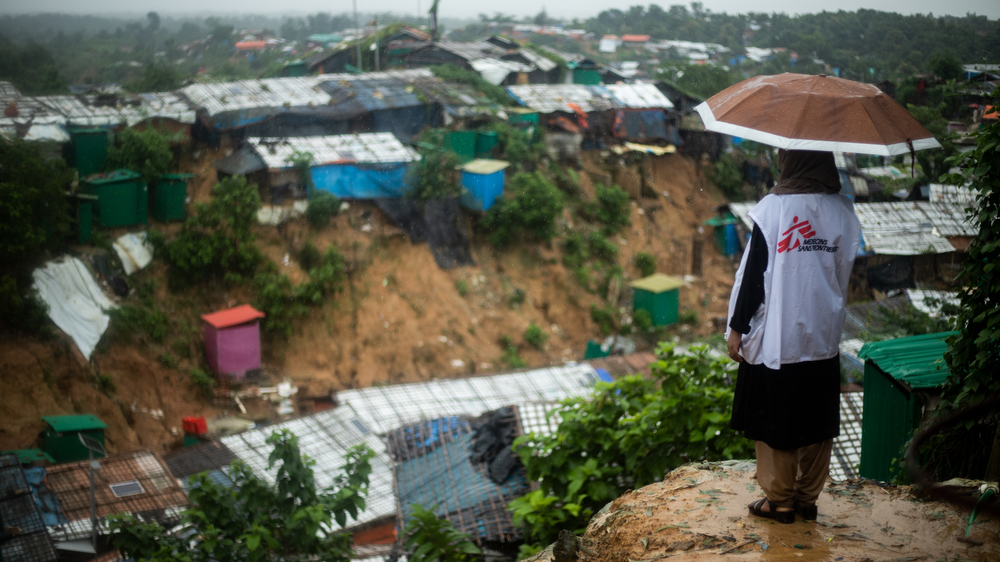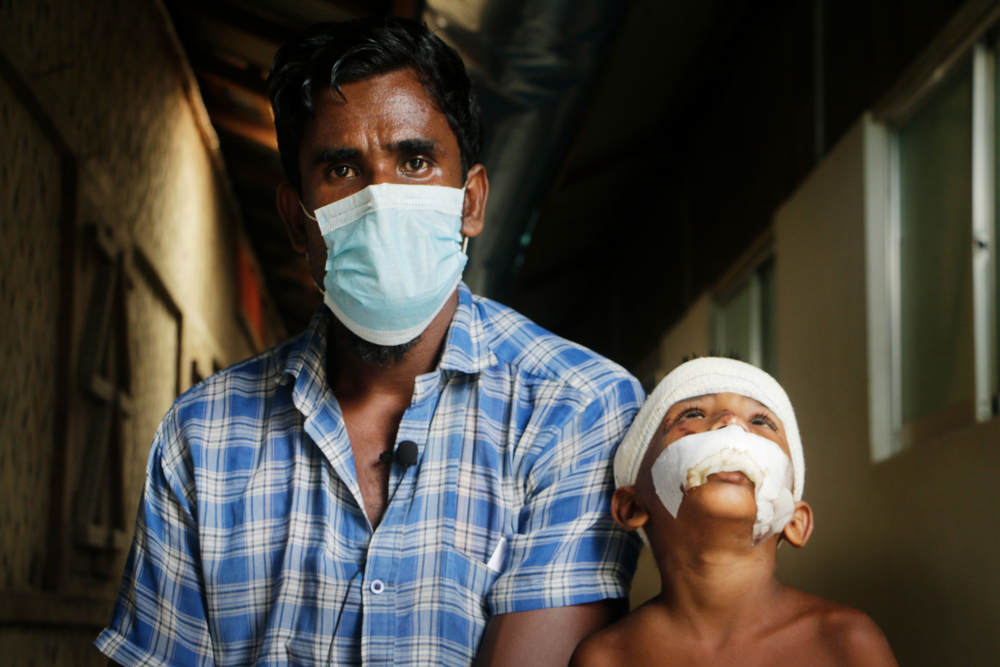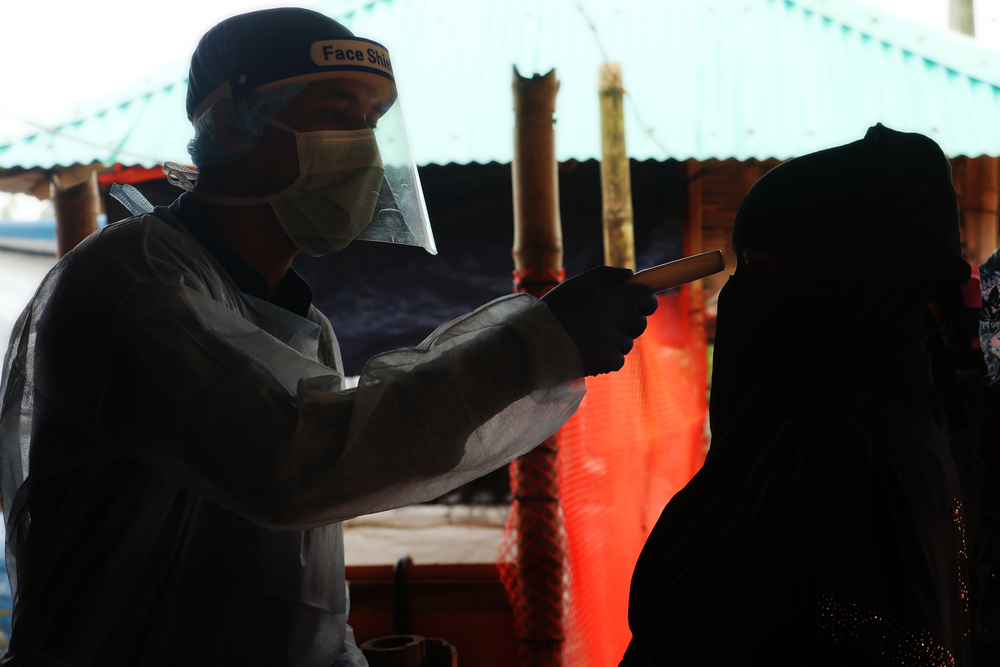“I left Myanmar because my house was burnt down,” says Abu Siddik. “They were killing and torturing everyone, and harassing our women. It was not safe.”
Abu, from Rakhine state in Myanmar, lives in a refugee camp in Cox’s Bazar with his wife and five children. When the family fled Myanmar, he and his wife carried their two youngest children the whole way because they were not old enough to walk.
Abu is in MSF’s Kutupalong hospital with his five-year-old son, Rashid, who is receiving specialist treatment after being hit by a local taxi.
“We used to live by the coast in Myanmar,” he says. “I had my own business and land. I had a house; I was a shrimp farmer. We had more space and autonomy there. Here everything is so crowded, there is not enough space. It is hard for the kids because they like to go out and play. In Myanmar there were open spaces, but here they play on the roads and it can be dangerous.
“We don't have any financial independence; all we can do is to receive aid. We can't even go to the local market. It has been worse since COVID-19, there are so many restrictions on our movement now that we have to break the rules just to survive.”



